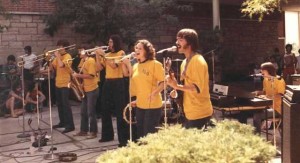To Read Or Not To Read, And Yet to Write—‘Tis A Conundrum Devoutly To Be Solved
I've heard of this phenomenon, but never before encountered it directly. Excuse me, I'm still trying to wrap my head around the utter vapidity of this... I have a MySpace page. Admittedly, I pay less attention to it these days in lieu of my Facebook page (all these Pages...for such a functional Luddite, it amazes me I navigate these strange seas), but I do check it at least once a week. I post a short blog there. And I collect Friend Requests. I received such a request the other day from someone whose name I will not use. Unless it's from someone or something I recognize, I go to the requester's page to check them out. Saves on a small amount of embarrassment. This person had a legit page. Aspiring writer. Claimed to be working on several short stories and a novel. Great. I'm all about supporting other writers. Sometimes we're all we've got. But I scrolled down to the section where he lists his interests and find under BOOKS this:
I actually don't read to much but I do like a few. Twilight, Harry Potter, Impulse, Dead on Town Line, etc.I sat back and stared at that and the question ran through my head like a neon billboard, "How does that work? Just how the hell do you want to be a writer and not like to read?" So I sent this person a message and asked. I told him that to be a writer you have to love words, love stories... Well, here's the exchange, sans names:
Okay, you sent me a friend request, so I looked at your profile. It says you want to be a writer, but then under Books you say you don't read much. How does that work? You want to be a writer you have to love words, you have to love stories, you have to love it on the page, and that means reading A LOT. You might just blow this off, but don't. If you really want to be a writer, you must read. That's where you learn your craft, sure, but more importantly that's where you nurture the love of what you say you want to do.

